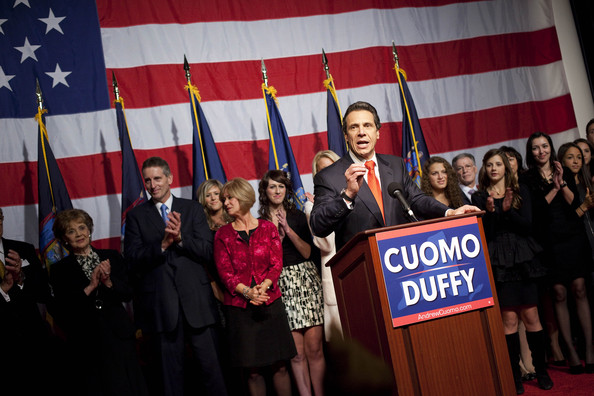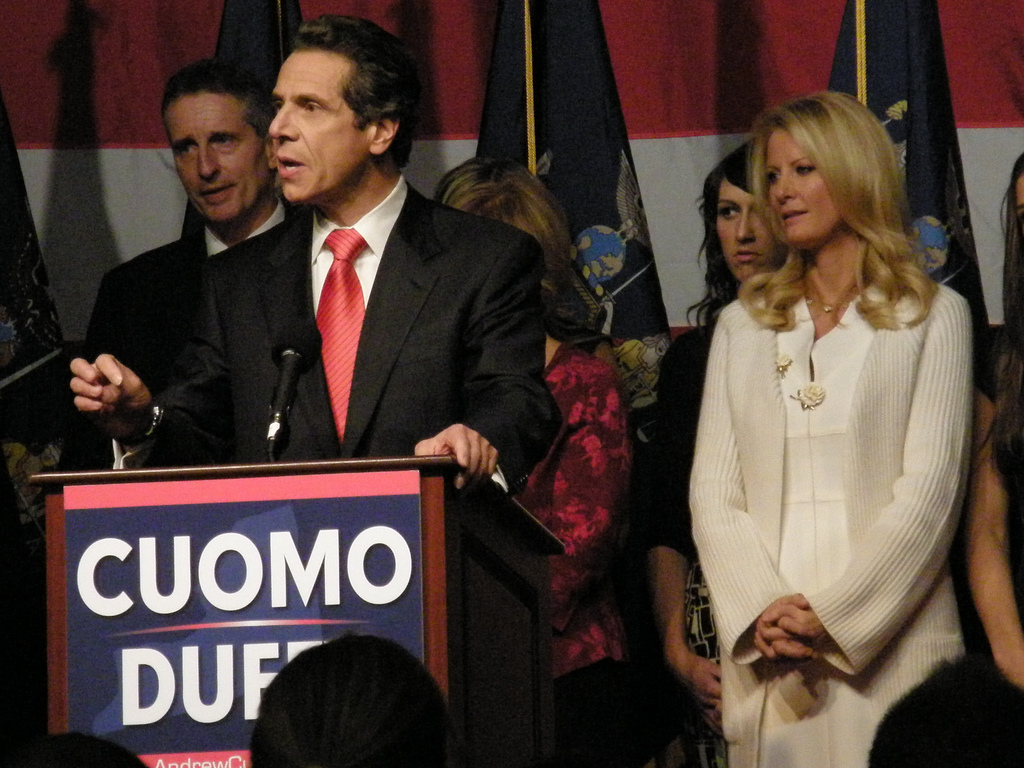

With the election of Democrat Andrew Cuomo, SUNY New Paltz faculty and political science professors expressed their concerns and hopes for the incoming administration of the governor-elect.
The issues members of the New Paltz community care about the most are largely the same: the budget deficit, lack of trust in government and job creation.
“Cuomo faces two major challenges in my view – the budget crisis and the crisis in confidence in state government. The two are clearly linked,” said Lewis Brownstein, professor of international relations. “He will be dealing with a legislature that has lost the confidence of the people of New York, and that is led by men who have demonstrated by their actions that they do not deserve to be in office. Whether [Cuomo] can strong-arm them and get the legislation he needs to balance the state’s budget, is not at all clear.”
According to Brownstein, Cuomo will likely “find himself at odds” with union leadership, which he said has been defiant to make concessions that could ease the financial crisis New York State is in. But despite this challenge, Brownstein believed Cuomo is in good shape in that he won election by a large margin and because of his experience in state government.
However, he said he didn’t necessarily feel Cuomo “resonated” with voters.
Center For Research Regional Education and Outreach (CRREO) Research Associate Joshua Simons agreed with Brownstein.
“Lets face it, in an election where your biggest opposition is from a sexist, homophobic, aficionado of pornography involving barnyard animals, who also perpetuates the use of some derisive language used to describe persons of color, the bar is not set particularly high,” said Simons.
But Simons also acknowledged that Cuomo’s support didn’t solely come from voters’ disdain for Paladino.
“That being said,” Simons continued, “Cuomo has a lot of good ideas about creating efficiencies in local government through shared service initiatives and the consolidation and dissolution of governments to reduce overlapping jurisdictions and redundant delivery of services.”
Simons also felt Cuomo had a “good grasp” on how to best manage the deficit facing New York State and felt the governor-elect is “prepared to make difficult decisions” to combat the state’s financial crisis.
Robert Tynes, an adjunct faculty member of the political science department, said he was drawn to Cuomo because of his platform and experience.
“Cuomo’s campaign pretty much spoke to what I hear in the Hudson Valley: people need work and Albany politics needs a thorough scrubbing,” Tynes said. “If Cuomo could bring in more work to the state and get Albany to be part of the solution, he’d score big.”
On the controversial issue of hydraulic fracturing, which is important to many in the New Paltz community, some in the geology department questioned whether Cuomo would take a definitive stance.
According to Alex Bartholomew, assistant professor in the geology department, constituents both for and against hydro-fracking may not find Cuomo to be a governor who sides with one group of advocates or another.
“Cuomo will have to decide whether or not to give his support to allowing hydrofracturing to take place within the state,” Bartholomew said. “It seems he is already in favor of allowing this process to take place so long as it is deemed ‘safe.’ Now, I am not sure whether the final decision lays in his signing into law any bills for or against this issue, but it seems he will not stand in the way of hydrofracturing in the long-run.”
Bartholomew also said he believes Cuomo “would not go out of his way to favor those who oppose [hydro-fracking].”
Most, if not all, professors agreed that Cuomo has a very difficult job ahead of him.
“I believe that the most challenging issue is going to be balancing the budget without decreasing service delivery,” said Simons. “He has the unenviable task of trying to reduce spending and increase revenues without alienating the people of New York.”
While many question whether Cuomo’s suspected ambition to proceed to higher offices was his main motivator in running for governor, Simons said he wasn’t sure this is the case. But Simons said that, given “no one runs for a higher office after being a horrible governor of New York,” he wouldn’t mind if Cuomo had higher ambitions.
Dr. Anne R. Roschelle of the department of sociology, who feels preserving the SUNY system and providing “high-quality, affordable” education to New Yorkers is Cuomo’s biggest challenge, said she wasn’t sure Cuomo’s successful bid for governor was driven by his political ambitions. She did feel however, that he genuinely wanted to be governor of New York and 2010 was the year he “finally got his chance.”
Brownstein was more apathetic.
“My experience tells me that virtually all governors of New York think they are qualified to be president,” he said. “I doubt that Mr. Cuomo is any exception in this regard.”
